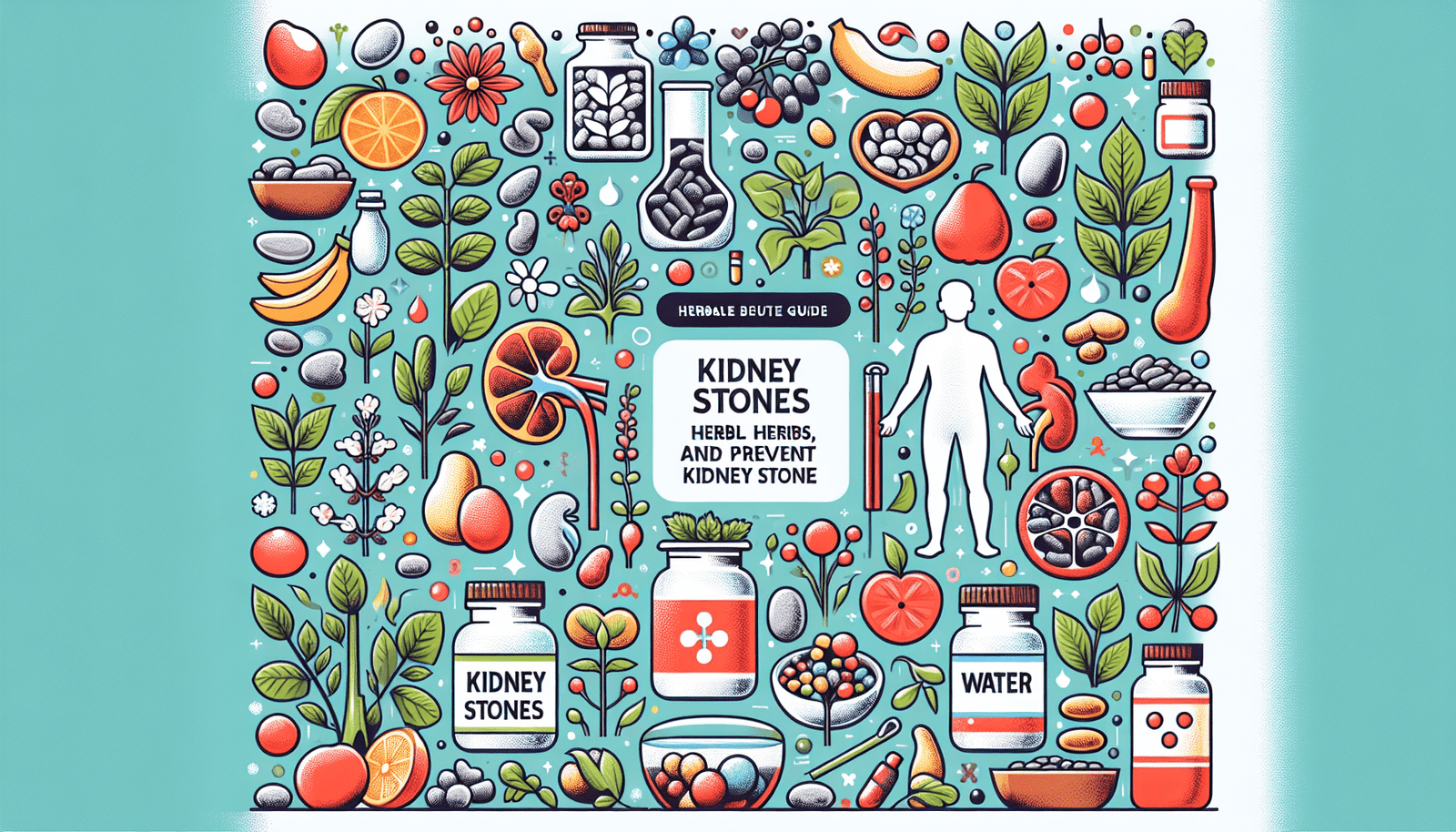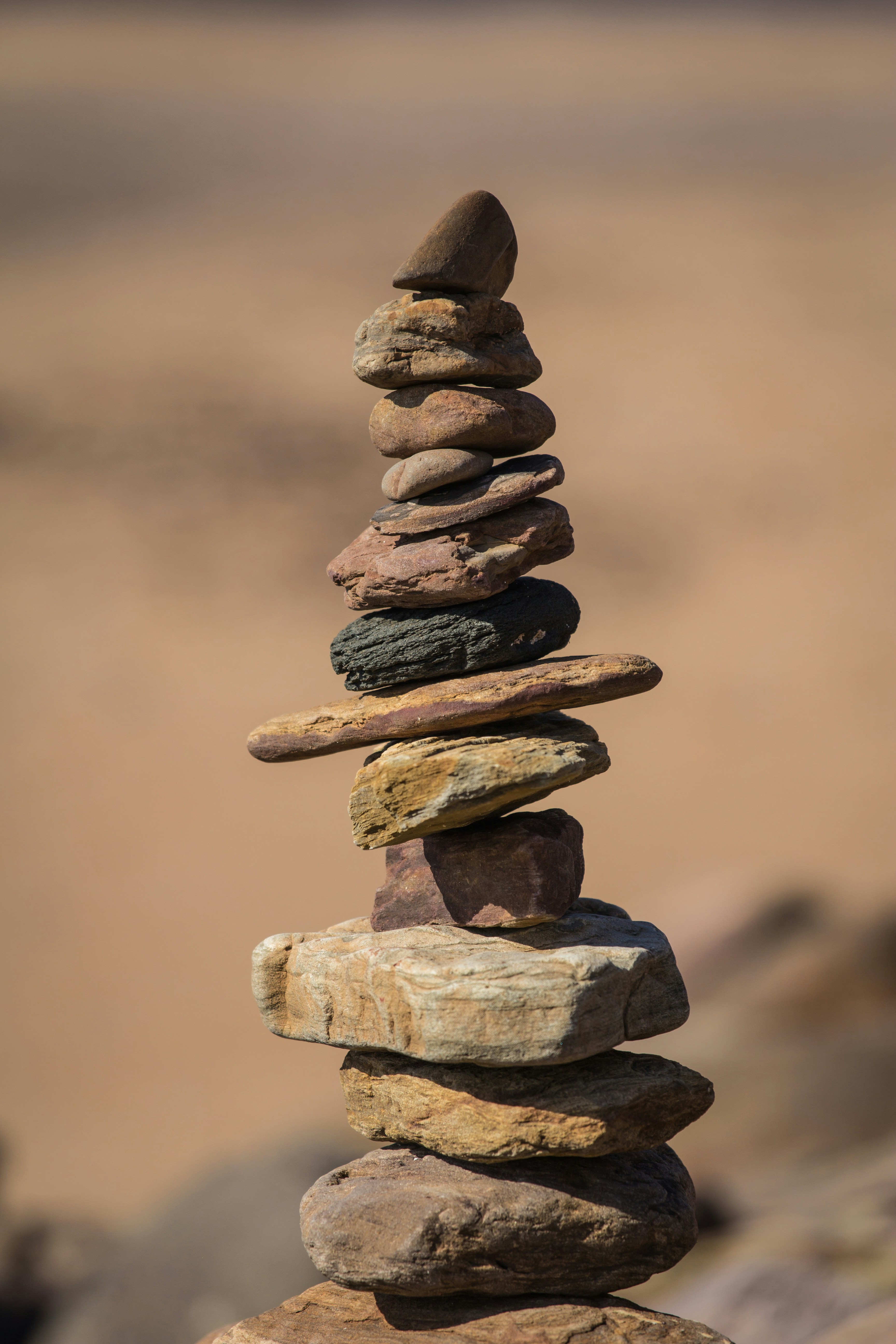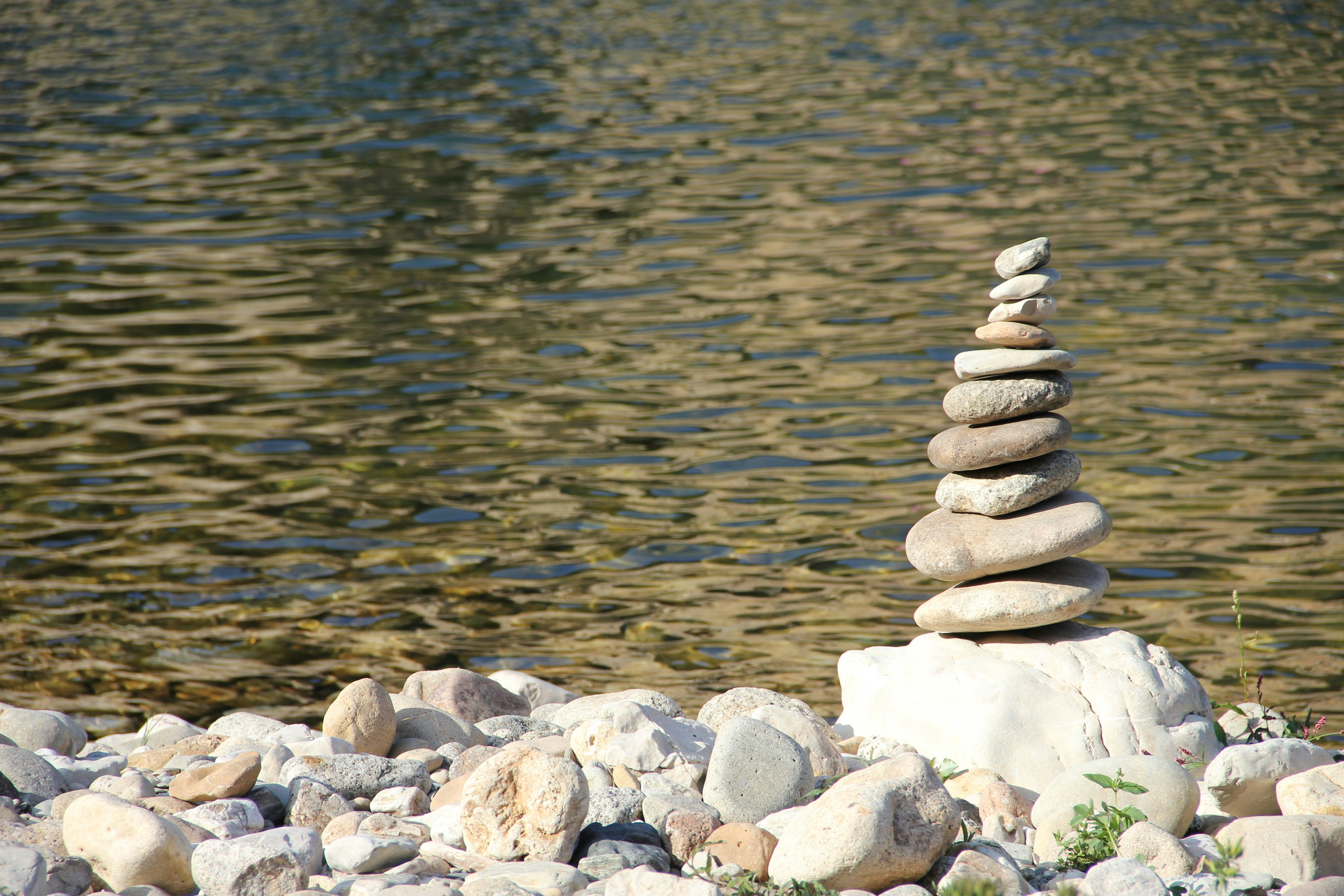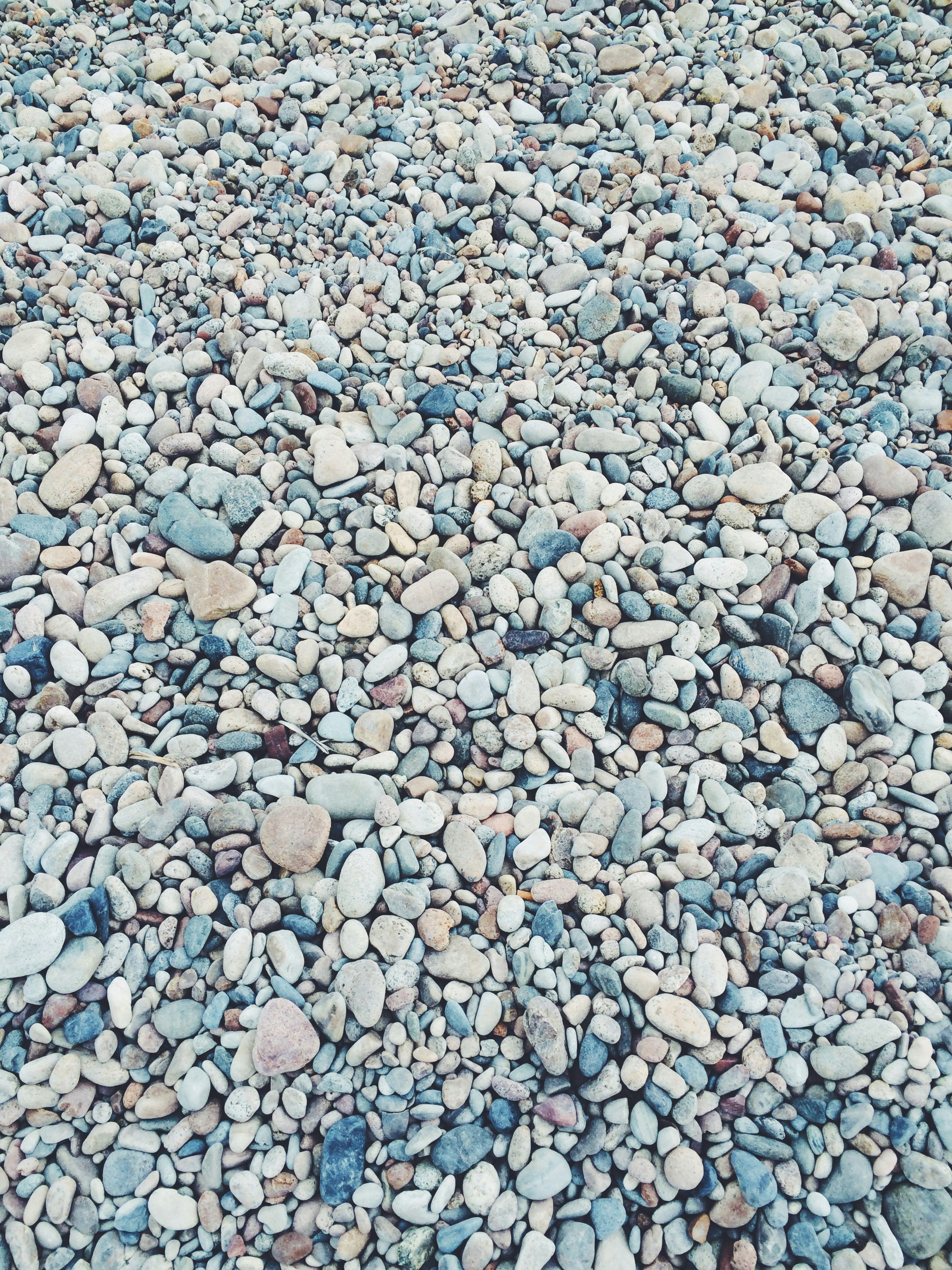If you’ve ever experienced the excruciating pain of a kidney stone, you know firsthand how important it is to prevent them from recurring. Luckily, there are numerous herbal remedies and supplements that can help in the prevention of kidney stones. In this article, we will explore some of the most effective natural options available, providing you with valuable information to keep those pesky stones at bay. So, if you’re ready to take control of your kidney health, let’s dive into the world of herbal remedies and supplements!
Herbal Remedies
1.1 Benefits of Herbal Remedies for Kidney Stone Prevention
When it comes to preventing kidney stones, herbal remedies can offer numerous benefits. One of the main advantages is that they are natural and usually have fewer side effects compared to conventional medications. Herbal remedies can help in reducing the risk of kidney stone formation by promoting urinary flow, inhibiting the crystallization of minerals, and supporting overall kidney health. Additionally, some herbal remedies possess anti-inflammatory and antioxidant properties, which can protect the kidneys from damage caused by oxidative stress. Overall, these remedies can play a valuable role in preventing the recurrence of kidney stones.
1.2 Popular Herbal Remedies for Kidney Stone Prevention
Several herbal remedies have been traditionally used for kidney stone prevention with promising results. One such remedy is Chanca piedra, also known as the “stone breaker” herb, which has been used for centuries in South America. It is believed to help break down kidney stones and facilitate their passage through the urinary system. Another popular herb is nettle leaf, which acts as a diuretic and helps flush out toxins and minerals from the kidneys. Dandelion root, marshmallow root, and horsetail are other herbs often recommended for kidney stone prevention due to their diuretic and anti-inflammatory properties. Additionally, supplements like magnesium and vitamin B6, which are derived from natural sources, can also be considered as herbal remedies for kidney stone prevention.
1.3 Dosage and Usage of Herbal Remedies
When using herbal remedies for kidney stone prevention, it is essential to follow the recommended dosage and usage guidelines. The dosage may vary depending on the specific herb or supplement being used. It is advisable to consult with a healthcare professional or herbalist to determine the appropriate dose for your individual needs. Herbal remedies are often available in various forms, including capsules, teas, tinctures, and powders. It is important to read the instructions carefully and follow them accordingly. It is also recommended to start with a lower dosage and gradually increase it if necessary. Regular use, coupled with proper dosage and usage, can maximize the benefits of herbal remedies for kidney stone prevention.
Supplements
2.1 Role of Supplements in Kidney Stone Prevention
Supplements play an important role in kidney stone prevention by providing the body with essential nutrients that support kidney health. These nutrients can help regulate mineral balance, promote urine flow, and inhibit the formation of crystals in the urinary system. Supplements can also help address any nutrient deficiencies that might contribute to kidney stone formation. Additionally, certain supplements like magnesium and vitamin B6 have been shown to reduce the risk of specific types of kidney stones. By incorporating supplements into your daily routine, you can support your kidneys’ function and reduce the likelihood of kidney stone recurrence.
2.2 Essential Supplements for Kidney Stone Prevention
While there are numerous supplements available for kidney stone prevention, some have proven to be particularly beneficial. Magnesium is an essential mineral that helps prevent the formation of calcium oxalate stones, which are the most common type of kidney stones. Vitamin B6, also known as pyridoxine, aids in the metabolism of oxalate, another mineral associated with kidney stone formation. Potassium citrate supplements can increase urine citrate levels, which inhibit the crystallization of calcium oxalate and other substances. Additionally, fish oil supplements, rich in omega-3 fatty acids, have anti-inflammatory properties and may help reduce kidney stone risk. However, it is crucial to consult with a healthcare professional before starting any new supplement regimen to ensure it is suitable for your specific needs.
2.3 Recommended Dosage for Supplements
The recommended dosage for supplements depends on the specific supplement and individual requirements. It is important to follow the dosage instructions provided by the manufacturer or healthcare professional. For magnesium, a typical dosage for kidney stone prevention ranges from 300 to 500 milligrams per day. In the case of vitamin B6, a dosage of 50 to 100 milligrams per day is often recommended. Potassium citrate supplements usually have a dosage of 10 to 20 milliequivalents per day. Fish oil supplements vary in dosage, but a common range for kidney stone prevention is 1,000 to 2,000 milligrams of omega-3 fatty acids per day. It is essential to monitor any potential side effects and consult with a healthcare professional if necessary.
Hydration
3.1 Importance of Hydration in Preventing Kidney Stones
Hydration plays a crucial role in preventing kidney stones as it helps maintain a diluted urine concentration, reducing the likelihood of crystal formation. Drinking an adequate amount of water throughout the day ensures that the kidneys can effectively flush out waste products and prevent the accumulation of minerals that can lead to stone formation. Staying properly hydrated also promotes a healthy urinary flow, making it easier for any potential stones to pass through the urinary system. Therefore, it is vital to prioritize hydration as an essential aspect of kidney stone prevention.
3.2 Herbal Teas for Kidney Stone Prevention
In addition to water, herbal teas can be a valuable addition to your hydration routine for kidney stone prevention. Certain herbs have diuretic properties that can increase urine production and promote better kidney function. Nettle leaf tea, for example, acts as a diuretic and can help flush out toxins and minerals from the kidneys. Dandelion root tea is another herbal option that supports kidney health and enhances urinary flow. Other herbal teas like chamomile, rosehip, and hibiscus can also be enjoyed as part of a hydrating routine. However, it is essential to consult with a healthcare professional or herbalist to ensure the safety and suitability of herbal teas for your specific health condition.
3.3 Water Intake Recommendations
The adequate intake of water varies depending on individual factors such as age, weight, activity level, and climate. However, a general guideline for kidney stone prevention is to aim for a daily water intake of at least 2 to 3 liters (8 to 12 cups). It is important to spread out water consumption throughout the day to maintain consistent hydration. Incorporating herbal teas and other hydrating beverages, such as infused water or unsweetened fruit juices, can also contribute to your fluid intake. Additionally, it is crucial to listen to your body’s signals and drink water whenever you feel thirsty. By prioritizing hydration, you can reduce the risk of kidney stone formation and support overall kidney health.
Dietary Changes
4.1 Impact of Diet on Kidney Stone Formation
Diet plays a significant role in kidney stone formation, as certain foods can contribute to the accumulation of minerals that form stones. Making dietary changes as part of a kidney stone prevention strategy can help minimize the risk of stone recurrence. Several factors to consider while modifying your diet include the intake of calcium, oxalate, sodium, and animal protein. Adjusting these aspects of your diet can help maintain a healthy mineral balance and reduce the likelihood of stone formation.
4.2 Foods to Include in Kidney Stone Prevention Diet
Incorporating certain foods into your diet can support kidney stone prevention by promoting overall kidney health and maintaining a balanced mineral composition in the body. Some foods that are beneficial for kidney stone prevention include lemons and citrus fruits, which contain citrate that can help prevent the formation of certain types of stones. Dark leafy greens like spinach and kale are rich in calcium and other nutrients that support kidney health. Additionally, foods high in dietary fiber, such as whole grains, fruits, and vegetables, can help prevent constipation, which is associated with an increased risk of kidney stones. It is important to consult with a healthcare professional or a registered dietitian to create a personalized kidney stone prevention diet that suits your specific needs.
4.3 Foods to Avoid for Kidney Stone Prevention
Certain foods can contribute to kidney stone formation and should be limited or avoided in a kidney stone prevention diet. Foods high in oxalate, such as spinach, rhubarb, beets, and chocolate, can increase the risk of calcium oxalate stone formation. Sodium-rich foods, including processed snacks, canned soups, and fast food, can lead to higher urinary calcium excretion and potentially promote stone development. Animal proteins, such as red meat, poultry, and seafood, may increase the excretion of calcium, uric acid, and oxalate, all of which are associated with kidney stone formation. Limiting or moderating the intake of these foods can help reduce the risk of kidney stone recurrence and promote better kidney health.
Exercise and Physical Activity
5.1 Role of Exercise in Kidney Stone Prevention
Engaging in regular exercise and physical activity can significantly contribute to kidney stone prevention. Exercise helps maintain a healthy body weight, which is essential in reducing the risk of stone formation. Being overweight or obese can increase the levels of certain substances in the urine that contribute to stone formation. Physical activity also improves blood circulation, which enhances kidney function and helps remove waste products from the body. Additionally, exercise can reduce the risk of certain underlying conditions, such as high blood pressure and metabolic disorders, which can increase the likelihood of kidney stone formation. By incorporating exercise into your routine, you can support kidney health and reduce the risk of stone recurrence.
5.2 Recommended Types of Exercise
Various types of exercises can be beneficial for kidney stone prevention. Aerobic exercises, such as brisk walking, jogging, swimming, or cycling, help improve cardiovascular health and promote weight management. Strength training exercises, using weights or resistance bands, can help build muscle mass and increase metabolic rate, further supporting weight maintenance and promoting overall health. Flexibility exercises, including stretching and yoga, can help improve mobility and prevent muscle imbalances. It is important to choose a variety of exercises that you enjoy and can incorporate into your daily routine. Consulting with a healthcare professional or a fitness expert can help determine the most suitable exercise plan for your individual needs.
5.3 Tips for Incorporating Physical Activity into Daily Routine
Incorporating physical activity into your daily routine can be challenging, but there are several strategies to make it more manageable. Start by setting realistic goals and gradually increase the duration and intensity of your exercise sessions. Find activities that you enjoy and involve your friends or family to make it more enjoyable. Consider incorporating physical activity into your daily activities, such as taking the stairs instead of the elevator, parking farther away from your destination, or walking or cycling for short distances instead of driving. Scheduling dedicated exercise time in your daily routine can also help ensure consistency. Remember to listen to your body and seek guidance from a healthcare professional if you have any underlying health conditions or concerns.
Stress Management
6.1 Link Between Stress and Kidney Stones
High levels of stress can have a detrimental effect on overall health, including kidney stone formation. Chronic stress can lead to hormonal imbalances, increased blood pressure, and altered kidney function, which can contribute to the development of kidney stones. Stress can also lead to lifestyle factors such as poor dietary choices, inadequate hydration, and a sedentary lifestyle, all of which can increase the risk of stone formation. Therefore, implementing strategies to manage and reduce stress is crucial for kidney stone prevention.
6.2 Stress Reduction Techniques for Kidney Stone Prevention
Managing stress effectively can be achieved through various techniques, helping to reduce the risk of kidney stone formation. Some popular stress reduction techniques include mindfulness meditation, deep breathing exercises, yoga, and progressive muscle relaxation. These techniques promote relaxation, reduce anxiety levels, and improve overall well-being. Engaging in hobbies or activities that bring joy and fulfillment can also help alleviate stress. Prioritizing self-care, getting enough sleep, and maintaining social connections are additional strategies that can contribute to stress reduction. Experimenting with different techniques to find what works best for you can help manage stress levels and reduce the risk of kidney stone recurrence.
6.3 Importance of Relaxation and Mindfulness
Incorporating relaxation and mindfulness practices into your daily routine is essential for kidney stone prevention. Relaxation techniques, such as deep breathing exercises or progressive muscle relaxation, can help reduce muscle tension, alleviate stress, and promote a sense of calm. Mindfulness involves being fully present in the moment and non-judgmentally observing your thoughts and feelings. By practicing mindfulness, you can develop a greater awareness of stress triggers and learn to respond to them in a more constructive way. Regularly engaging in relaxation and mindfulness practices can contribute to overall well-being, reduce the risk of stress-related complications, and support kidney health.
Routine Monitoring and Follow-Up
7.1 Importance of Regular Medical Check-Ups
Routine medical check-ups are essential for kidney stone prevention as they allow healthcare professionals to monitor your kidney health and identify any potential issues at an early stage. During these check-ups, your healthcare provider may perform urine tests, blood tests, and imaging studies to assess kidney function, identify any signs of stone formation or other abnormalities, and recommend appropriate interventions. Regular check-ups also provide an opportunity for open communication with your healthcare provider, enabling you to discuss any concerns, ask questions, and receive personalized advice for kidney stone prevention.
7.2 Kidney Stone Detection Methods
Various methods can be used to detect kidney stones and assess kidney health. One common method is urinalysis, which involves analyzing a urine sample to identify any signs of infection, blood, or abnormal levels of minerals associated with stone formation. Blood tests can measure kidney function, identify any abnormalities in mineral levels, and assess overall health. Imaging studies, such as X-rays, ultrasound, or computed tomography (CT) scans, can help identify the presence, location, and size of kidney stones. By utilizing these detection methods, healthcare professionals can obtain valuable information to guide kidney stone prevention strategies and provide appropriate recommendations.
7.3 Follow-Up Care and Monitoring
After an initial diagnosis or intervention for kidney stones, follow-up care and monitoring are crucial to ensure ongoing kidney stone prevention. Your healthcare provider will determine the appropriate frequency of follow-up visits based on your specific situation. These visits may involve repeating urine tests, blood tests, or imaging studies to assess kidney function, monitor stone progression or recurrence, and adjust preventive measures as needed. Follow-up care also provides an opportunity for addressing any concerns, discussing treatment options, and further optimizing your kidney stone prevention plan. By staying proactive with routine monitoring and follow-up, you can effectively manage your kidney stone risk and maintain optimal kidney health.
Potential Risks and Side Effects
8.1 Risk of Herbal Remedies and Supplements
While herbal remedies and supplements can offer valuable benefits for kidney stone prevention, there are potential risks and side effects to consider. Some herbs may interact with medications or medical conditions, potentially leading to adverse effects. Additionally, certain supplements in high doses can cause gastrointestinal issues, allergic reactions, or interfere with other medications. It is crucial to consult with a healthcare professional before starting any new herbal remedy or supplement, especially if you have underlying health conditions or are taking medications. This will help ensure the safety and suitability of these interventions for your individual needs.
8.2 Consulting with a Healthcare Professional
To mitigate potential risks and side effects associated with herbal remedies and supplements, it is important to consult with a healthcare professional. A healthcare professional or herbalist can assess your medical history, current medications, and individual needs to determine the safety and appropriate use of herbal remedies and supplements for kidney stone prevention. They can guide you in selecting high-quality products, recommend suitable dosage and usage, and monitor for any potential interactions or side effects. By working collaboratively with a healthcare professional, you can optimize the benefits and minimize the risks of herbal remedies and supplements.
8.3 Monitoring for Adverse Reactions
When using herbal remedies and supplements, it is vital to monitor for any adverse reactions or unexpected side effects. This involves paying attention to any changes in your body, such as gastrointestinal disturbances, allergic reactions, or other symptoms that might be associated with the usage of herbal remedies or supplements. If you experience any adverse reactions or have concerns, it is important to seek medical attention and consult with a healthcare professional. They can evaluate your symptoms, provide appropriate guidance, and make adjustments to your kidney stone prevention plan accordingly. Regular monitoring and open communication are key to ensuring your safety and well-being while using herbal remedies and supplements.

Combining Conventional and Herbal Approaches
9.1 Integrating Conventional Medicine with Herbal Remedies
Integrating conventional medicine with herbal remedies can provide a comprehensive and personalized approach to kidney stone prevention. Conventional medications prescribed by healthcare professionals can directly target specific mechanisms involved in stone formation, while herbal remedies can offer additional support and contribute to overall kidney health. By working collaboratively with healthcare providers and herbalists, you can develop a well-rounded prevention strategy that combines the benefits of both approaches. It is crucial to communicate openly with your healthcare team, disclose any herbal remedies or supplements you are using, and follow their guidance for safe and effective integration.
9.2 Coordinating with Healthcare Providers
Coordinating with healthcare providers is essential for effective integration and coordination of conventional and herbal approaches to kidney stone prevention. Open communication with your healthcare team allows them to have a complete understanding of your health history, treatment plan, and any additional interventions you are incorporating. This enables them to make informed decisions, ensure there are no contraindications, and provide appropriate guidance and support throughout your kidney stone prevention journey. By actively involving your healthcare providers, you can optimize the effectiveness and safety of your holistic treatment approach.
9.3 Importance of Open Communication
Open communication is vital when combining conventional and herbal approaches to kidney stone prevention. It is crucial to inform your healthcare providers about any herbal remedies or supplements you are using, as well as any changes you make to your treatment plan. This includes sharing information about dosage, usage, and any potential side effects you may be experiencing. Your healthcare team can then evaluate the compatibility of these interventions with your overall health, ensure there are no detrimental interactions, and optimize the effectiveness of your kidney stone prevention strategy. By maintaining open and honest communication, you can facilitate a collaborative approach to your well-being.
Conclusion
10.1 Overview and Recap of Kidney Stone Prevention Approaches
In conclusion, kidney stone prevention involves a comprehensive approach that encompasses various aspects of lifestyle, diet, supplementation, and medical care. Herbal remedies, supplements, hydration, dietary changes, exercise, stress management, routine monitoring, and a collaborative approach combining conventional and herbal approaches are all essential elements in preventing kidney stones. By incorporating these strategies, individuals can minimize the risk of stone formation, support overall kidney health, and improve their overall well-being.
10.2 Empowerment through Knowledge and Proactive Measures
Understanding kidney stone prevention approaches empowers individuals to take proactive measures to protect their kidney health. By learning about the benefits of herbal remedies, supplements, hydration, dietary changes, exercise, stress management, and routine monitoring, individuals can make informed decisions and take ownership of their well-being. Empowerment through knowledge allows individuals to actively participate in their prevention strategies and engage in open communication with healthcare providers to optimize their kidney stone prevention plan.
10.3 Encouraging Early Intervention for Better Outcomes
Early intervention is crucial in kidney stone prevention to achieve better outcomes and minimize the risk of stone recurrence. By implementing preventive measures, such as herbal remedies, supplements, hydration, dietary changes, exercise, stress management, routine monitoring, and collaborative approaches, individuals can take proactive steps to prevent the formation of kidney stones. It is important to prioritize kidney health, seek appropriate medical guidance, and engage in regular check-ups to detect any potential issues at an early stage. By encouraging early intervention, individuals can significantly reduce the burden of kidney stones and enhance their overall quality of life.





